By: Dr. W. Scott West, Chief Medical Officer, Nashville Neurocare Therapy
October is Depression Awareness Month.
Defining Depression
Depression is a serious mood disorder that impacts how we think and feel. Symptoms can touch every part of our lives: work, relationships, and basic tasks like sleeping, eating, and personal maintenance (NIMH). Depression takes many forms and can be comorbid or co-occurring with other mental illnesses, including anxiety disorders, eating disorders, and substance abuse.
Who Does Depression Impact
It’s estimated that depression impacts 21 million adults in the United States. That is 8.4% of all adults in the country. While depression doesn’t discriminate across race, gender, age, or class lines, the data shows that “the prevalence of major depressive episodes was higher among adult females,” people aged 18-25, and “those who report having multiple (two or more) races” (NIMH). Just because depression is common does not mean it is normal; everyone living with mental illness deserves treatment and relief.
Common Symptoms
Depression has multiple symptoms though not everyone experiences them in the same way. Research indicates that symptoms can manifest differently in people depending on race, age, gender, socioeconomic status and more. For instance, men with depression are more likely to express irritability as a symptom. A study by my colleague, Dr. Rahn Bailey, on racial and ethnic differences in depression shows that people of color are more likely not to exhibit hopelessness as a prominent symptom of their depression.
While not all symptoms are universally expressed, many common symptoms of depression include:
- Difficulty focusing, remembering details, and making decisions
- Exhaustion and fatigue
- Feelings of helplessness and hopelessness
- Trouble sleeping or sleeping too much
- Out-of-character irritability
- Loss of interest in things once enjoyed
- Overeating or loss of appetite
- Physical pains such as digestive problems, aches and pains, or headaches
- Continual feelings of sadness and emptiness
- Suicidal ideation, plans, or attempts
Correcting Harmful Misconceptions about Depression
Depression awareness— and mental health awareness in general— is essential for helping fight the stigma, demystify symptoms, and clear the path towards treatment. When we remove the shame associated with living with depression, we make it easier for people to find the help they deserve.
That being said, the more we talk about depression as a society, the easier it is for generalizations and stereotypes to emerge. One myth that continues to create a barrier between people and treatment is the idea that “depression is all in your head.” While you can’t see depression the same way you can see a broken bone or rampant fever, our bodies and minds are undeniably linked. Whether it’s an injury, disease, or mental illness, every ailment we experience happens in our bodies and minds. What we feel and think affects our bodies. What happens to our bodies impacts our minds. We cannot disentangle the two.
The idea that we can— that our minds and bodies are separate— comes from Descartes’ theory of mind-body dualism. The French philosopher Rene Descartes “placed an impenetrable wall between the brain (physical) and mind (mental), with the claim that the brain cannot create mental processes because they are two different kinds of substance (physical and mental).” Though purported in the 17th century and “despite neuroscience research confirming the interdependence of the mind and the brain,” Descartes’ philosophy that the mind and body are completely distinct and separate continues to influence our perception of mental illness to this day. It adds to the stigma that mental health is a matter of attitude or will and undermines the validity of its impact on our physical bodies, brain chemistry, and hormones.
The truth is that the brain is part of your body, and it is impossible to separate our cognitive functioning from the body. Something being “in your head” doesn’t dismiss its reality in your body and in your lived experience. Your body and mind are interdependent, and your mental health deserves the same care, attention, and treatment as any other injury or illness.
Seeking Treatment for Depression
There are many treatments available for depression. Cognitive Behavioral Therapy (CBT) and medication are some of the most well-known treatments available. Finding a treatment plan that works for you might take time, and what works for somebody else might not be the right solution for you. The important thing is that there is relief out there for you, and the search is well worth the effort.
If you or someone you know has been struggling to find relief from depression with their current treatment, it might be time to try TMS Therapy. TMS, short for Transcranial Magnetic Stimulation, uses non-invasive magnet-pulse technology to activate centers of the brain that are under-firing in depressed brains. These centers control and regulate mood and behavior. A little stimulation from completely safe magnets can help jumpstart your brain’s ability to build and strengthen the neural pathways in these underactive parts of your brain. This Therapy will help your brain learn to regulate moods on its own. TMS Therapy is a safe, comfortable, and side-effects-free way to treat the root cause of depression, not just the symptoms.
Patients who have had trouble combatting their depression with talk therapy or who find antidepressants an unviable solution often succeed with TMS Therapy. If medication is not working for you, the American Psychiatric Association (APA) lists Transcranial Magnetic Stimulation (TMS) Therapy as an alternative treatment path. Share the gift of hope with someone you love today and share this article. TMS Therapy could be the missing piece of their depression treatment plan. Contact our office to set up a free TMS Therapy screening today.
About the Author: Dr. W. Scott West
Nationally recognized, board-certified psychiatrist, Dr. W. Scott West, blazed the trail for TMS therapy in Tennessee as the first physician to offer this advanced technology in 2010. With 30+ years experience in clinical depression, Dr. West leads the Nashville Neurocare team.
- Board Certified Psychiatrist
- Specialty: Certified TMS Psychiatrist since 2010
- Diplomate: The American Board of Psychiatry and Neurology
- Distinguished Life Fellow: American Psychiatric Association
- Residency: Vanderbilt University, Hospital Department of Psychiatry
- Medical School: University of Tennessee, Knoxville, Center for the Health Sciences
- Hospital Affiliations: St. Thomas Hospital


